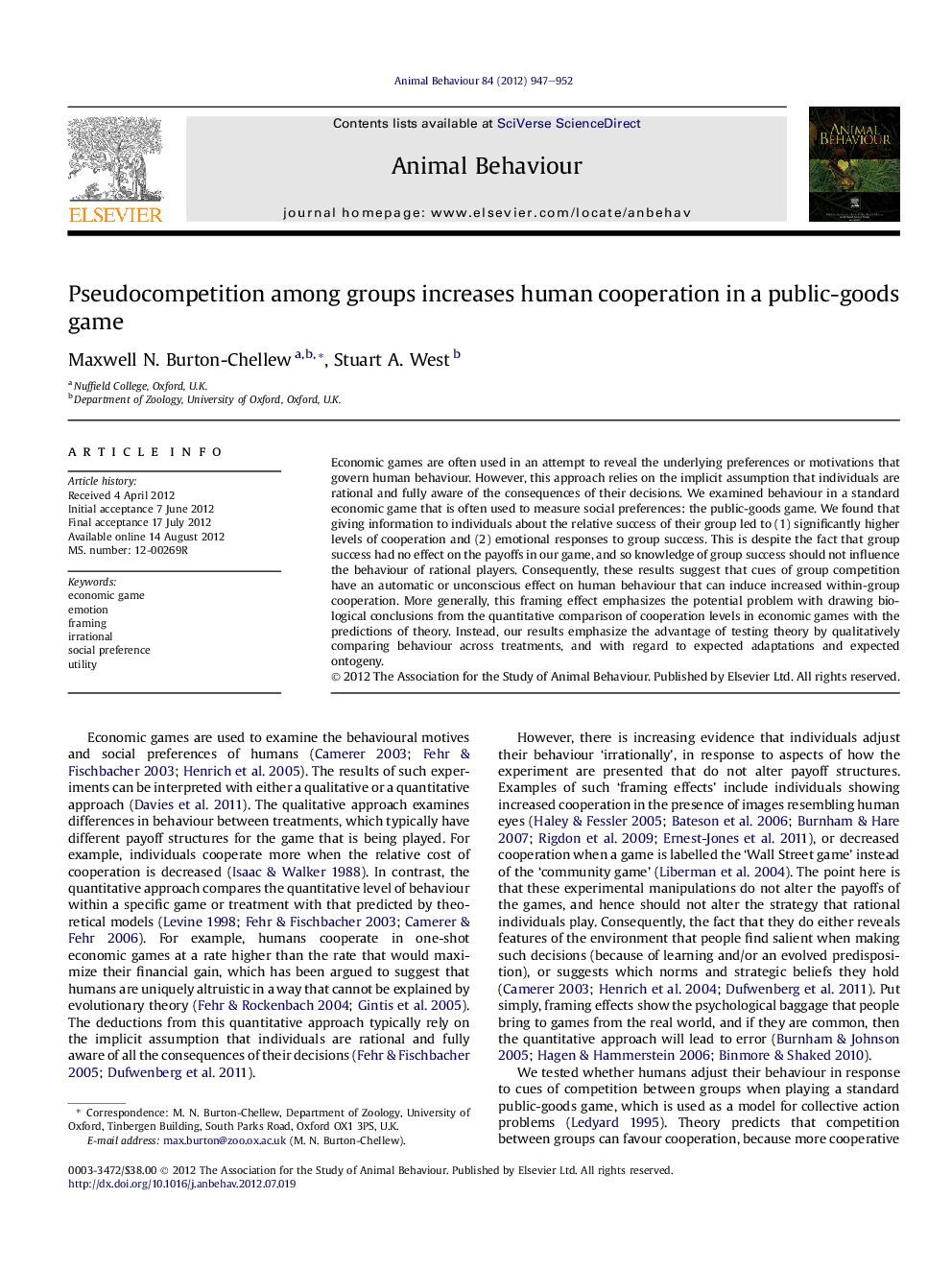| Article ID | Journal | Published Year | Pages | File Type |
|---|---|---|---|---|
| 2416533 | Animal Behaviour | 2012 | 6 Pages |
Economic games are often used in an attempt to reveal the underlying preferences or motivations that govern human behaviour. However, this approach relies on the implicit assumption that individuals are rational and fully aware of the consequences of their decisions. We examined behaviour in a standard economic game that is often used to measure social preferences: the public-goods game. We found that giving information to individuals about the relative success of their group led to (1) significantly higher levels of cooperation and (2) emotional responses to group success. This is despite the fact that group success had no effect on the payoffs in our game, and so knowledge of group success should not influence the behaviour of rational players. Consequently, these results suggest that cues of group competition have an automatic or unconscious effect on human behaviour that can induce increased within-group cooperation. More generally, this framing effect emphasizes the potential problem with drawing biological conclusions from the quantitative comparison of cooperation levels in economic games with the predictions of theory. Instead, our results emphasize the advantage of testing theory by qualitatively comparing behaviour across treatments, and with regard to expected adaptations and expected ontogeny.
► We manipulate human behaviour in an economic public-goods game without affecting payoffs. ► We give individuals information about the relative success of their group. ► This information induces emotional responses to group success/failure. ► Such group comparisons lead to significantly increased cooperation. ► We stress the advantage of qualitative over quantitative tests in ethology.
